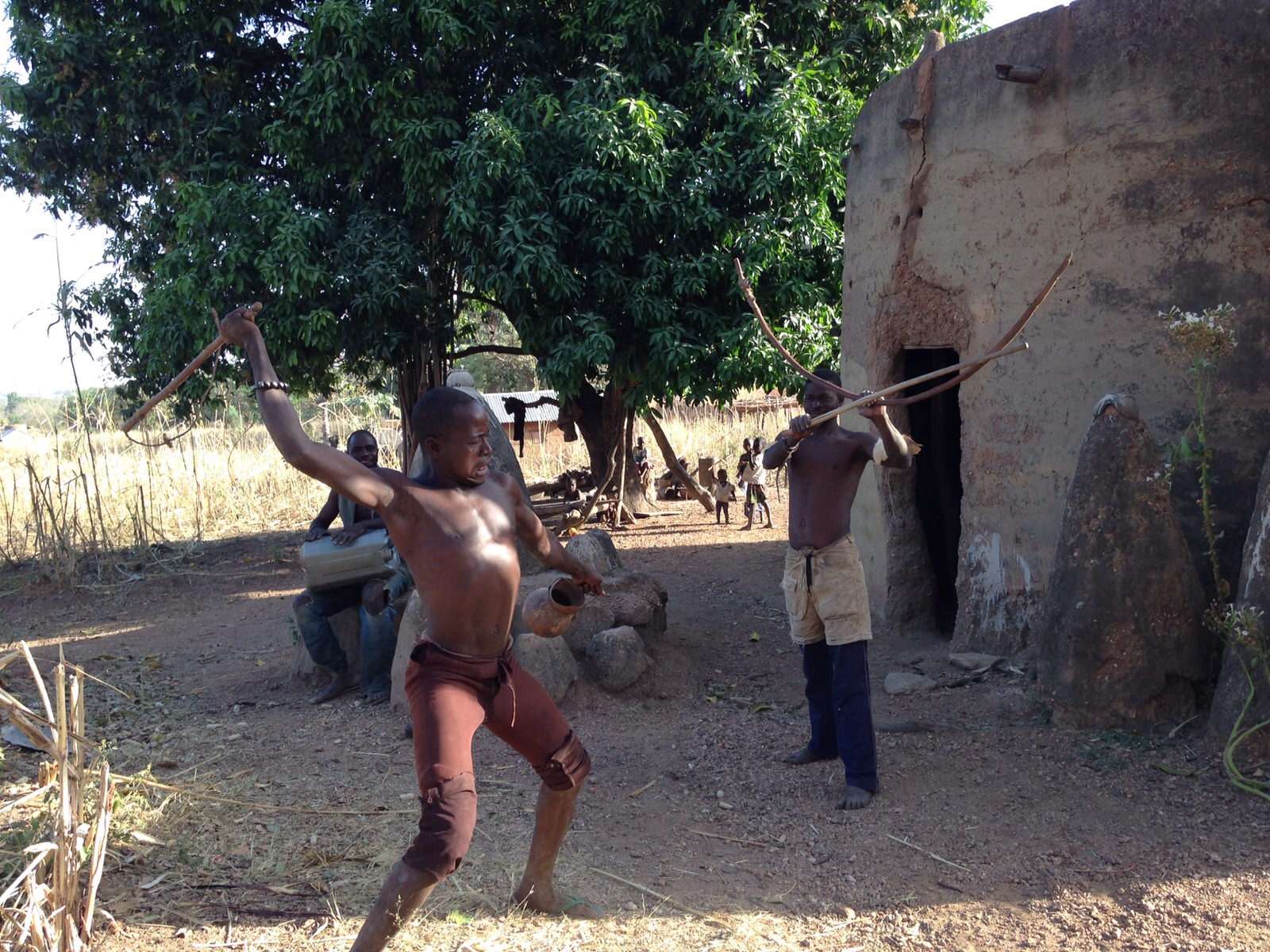
Over the Christmas vacation, I had the exciting opportunity to travel solo up into the north of Togo, Burkina Faso and Ghana. One of the most memorable places in Togo which has touched my heart tremendously was a village in the North of Togo – Koutammakou.
Koutammouko, the Land of the Batammaribe is a cultural landscape designated in 2004 as a UNESCO World Heritage Site in northern Togo. Koutammakouis famous forits unique collection of traditional mud tower-houses –known as “tata”. Tataswere founded in the 17th century by people fleeing the slave-grabbing forays of Benin’s Dahomeyan kings. Today, not only are the traditional mud houses known as a national symbol of Togo, it remains as the preferred style of living for its people there.
The mud-built tata is a visually striking village architecture which also reflects a unique adaptation to the attributes of the local environment by the Batammaribe people. The Tamberma (meaning “skilled builders”) compounds consists of towers connected by a thick wall with a single entrance chamberwhich are used to trap an enemy. The castle-like nature of these extraordinary structures – built with only clay, wood and straw and no tools – help ward off invasions by neighbouring tribes. Life in tata revolves around an elevated terrace of clay-covered logs, where the inhabitants cook, dry their millet and corn, and spend most of their leisure time. Many of these tata tower houses also has a fetish shrine in front. No doubt, they are primarily a practical manifestation of these people’s close association with nature and a reflection of traditional settlement that is still living and dynamic today.For just over two days, I had the humble opportunity of living in a tata and amongst the gracious and hospitable village people of Batammaribe.
Koutammakou exhibits all the facets of an agricultural society working in harmony with the landscape and where nature underpins beliefs, rituals and everyday life. People continue to farm numerous hectares of land by manual labour cultivating food sources such as corn, cotton and millet. As a result, childbearing is often encouraged by the family and many children (and adults) within the village are not given the opportunity to receive education due to financial constraints and work requirements. I have encountered many people in the village who cannot communicate in French and are largely illiterate. Such rural population is also often a group which is beyond the reach of social safety nets and poverty programmes. Electricity and running water was not present in the village. Several “wealthier” people in the village may own simple mobile phones and one of the greatest highlights of their night parties out in the bush is the opportunity to recharge their phones using the village’s electricity generator!
No doubt, being a tourist destination Koutammakou was not a village of extreme poverty. But it certainly inspired me to ponder about the meaning of poverty. We often perceive poverty to be the miserable skinny World Vision poster child walking bare foot in the rural area of Africa suffering from food insufficiency. Yet, poverty is perhaps multifaceted and food insecurity is definitely not the only perspective of poverty. The United Nations defines poverty as follows:
“Fundamentally, poverty is the inability of getting choices and opportunities, a violation of human dignity. It means lack of basic capacity to participate effectively in society. It means not having enough to feed and clothe a family, not having a school or clinic to go to, not having the land on which to grow one’s food or a job to earn one’s living, not having access to credit. It means insecurity, powerlessness and exclusion of individuals, households and communities. It means susceptibility to violence, and it often implies living in marginal or fragile environments, without access to clean water or sanitation.”
The modest experience of living in the village of Koutammakou was no doubt touching and heart felt. I hope that wherever I am, I would always be reminded of the small glimpse of poverty which I witnessed and the lesson of poverty fromNelson Mandela – “Overcoming poverty is not a gesture of charity. It is the protection of a fundamental human right, the right to dignity and a descent life.”
[Best_Wordpress_Gallery id=”2″ gal_title=”loving africa 6″]